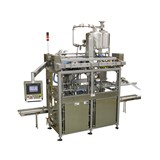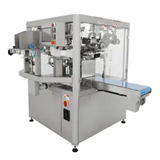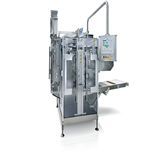The event, hosted by RMIT's Centre for Design in partnership with the Sustainable Packaging Alliance, bridged the gap between marketing professionals, packaging technologists, product innovation specialists and procurement managers, with high-level and practical presentations from speakers in a range of industries.
Among the presentations was an overview of the Australian Food and Grocery Council's recently developed "Sustainable Packaging Toolkit", giving marketing professionals the knowledge they need for a greater understanding and positive influence on decisions about sustainable packing design, marketing and end-of-life.
Dr Enda Crossin, Program Director at RMIT's Centre for Design, presented an overview of the life cycle assessment (LCA) process and discussed how it could be used to gain further insights into the environmental performance of packaging materials.
Dr Crossin said it was important to consider the full product life cycle when assessing potential environmental benefits.
"Environmental properties, such as being compostable or renewable, don't necessarily translate into better environmental outcomes; this is why LCA is so important," he said.
"I found the roundtable particularly informative, as it gave the predominantly marketing audience exposure to research undertaken in food and packaging sustainability."
Dr Helén Williams from Karlstad University in Sweden, spent six months with researchers at RMIT exploring ways to decrease food waste by using more efficient packaging.
Dr Williams said when food and packaging were considered together in an environmental analysis it became obvious that packaging often represented less than 10 per cent of the total environmental impact.
"Most of the food in the supply chain in industrialised countries is wasted by the consumer and if packaging functions can be improved to, for example, allow for smaller packaging sizes there will be less waste and more protection for the environment," she said.
"The roundtable was overall a very interesting day with many perspectives about sustainable development and how and why to market this to consumers."
Experts from CHEP, Treasury Wine Estates, Fujitsu, Outerspace Design, Deakin University, Net Balance and Qbrand Consulting also spoke about linking sustainable packaging to customer value, brand values and brand equity.
Antony Simmons, Director of Do Water, said the round table was beneficial and informative.
"I thought the round table was a very worthwhile event and I hope to keep an eye out for other events relating to sustainable marketing practices," he said.







-160x160-state_article-rel-cat.png)











